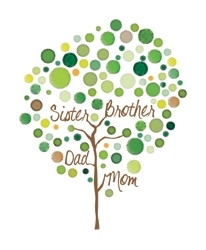Before any patient begins treatment for cancer, oncologists should discuss first- and second-degree family cancer history, according to new recommendations from the American Society of Clinical Oncology (ASCO). The ASCO recommendations, published recently, are the first to focus on family history and a person’s genetic risk of cancer.
Angelina Jolie Puts Spotlight on Genetic Testing and Ovarian Cancer Risk
Once again Angelina Jolie is making headlines after penning another op-ed in The New York Times. The actress shared she has undergone more cancer preventive surgery – this time prophylactic salpingo-oophorectomy, a procedure to have her ovaries and fallopian tubes removed. Two years ago, she wrote about her decision to have a prophylactic double mastectomy, … Read more

 If your son or daughter has been diagnosed with a type of
If your son or daughter has been diagnosed with a type of